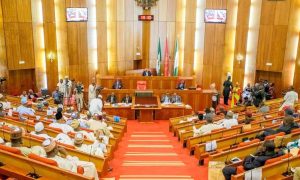Inclusive Development Zone (IDZs) offer a solution to the problems of poor labour and business licensing laws
Finding effective responses to migration tops the political agenda in many countries. There are approximately 281 million migrants worldwide, 117 million of whom have been driven out by force. Unfortunately, many of these people have little opportunity to legally provide homes or work for themselves, driving many into burgeoning informal settlements and underground economies across the developing world. A new type of special economic zone (SEZ), an inclusive development zone (IDZ), could play a key role in addressing this situation.
For decades, SEZs have removed barriers to investment. Throughout the 20th century, SEZs (also known as free trade zones) removed protectionist trade barriers in Latin America, east Asia and elsewhere by allowing foreign goods to enter the zone without customs duties. In the 1980s, China used SEZs as pilot areas for free market policies. More recently, SEZs in the UAE, such as the Dubai International Financial Center, introduced UK-modelled laws and independent courts, leading to its emergence as the financial hub of the Middle East.
Thus far, SEZs have primarily served to expand freedom for global capital. The most severe restrictions on freedom, however, are faced by those at the bottom.
In many countries, poorly designed labour and business licensing regulations make it difficult for people to find work or start businesses except in the informal (illegal) economy. Similarly, unnecessarily restrictive building codes make it nearly impossible for people to find an affordable home, unless they build one illegally. Many of these businesses and homes are safe, legitimate, and beneficial for society; however, inefficient rules force them into a precarious position, without legal protection or access to finance.
The situation for most low-income migrants is much worse. Many cannot obtain work permits, identification, or basic government services. Since they do not want to spend their lives in forced unproductivity, they find work, start businesses and build homes anyway.
What if we supported this creative activity through an IDZ? This would be a type of SEZ that lowers regulatory barriers to home construction and business operation. A social-enterprise developer would provide basic infrastructure, around which residents could buy or lease small plots and build their own homes and businesses. Residents could access efficient public services through an IDZ administrator. The developer could recover its costs and finance future infrastructure improvements through a land value charge.
Some argue that instead of introducing these changes within a zone, we should push for nationwide reform. I believe we should do both. An IDZ should not be a substitute for nationwide reforms, but a pilot that tests their impact, much like China’s SEZs. IDZs could introduce solutions much faster than bureaucracies can nationwide.
IDZs address problems with migration and informality at their root causes. They are not an expensive, top-down intervention, but a tool that supports organically created solutions. In short, IDZs work because they expand freedom, not at the top but at the bottom.
fDi



























